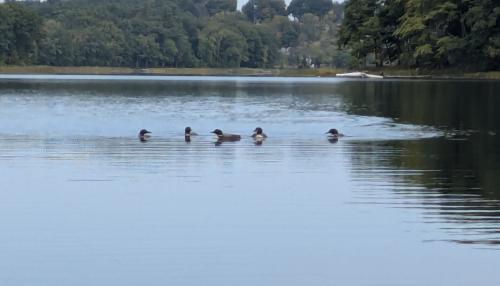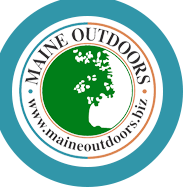A Thought on Conservation
I recently heard this piece on public radio and it jogged my mind on a topic I have been thinking about lately. That is that the hunters and anglers of this country have lead conservation efforts in the United States for many years. More than a century now, in fact even the Maine Guides license that I hold was initially issued to ensure that hunters bought the hunting licenses that funded early conservation efforts. Law enforcement at first but later scientific wildlife management and eventually fisheries management as well.
for many years. More than a century now, in fact even the Maine Guides license that I hold was initially issued to ensure that hunters bought the hunting licenses that funded early conservation efforts. Law enforcement at first but later scientific wildlife management and eventually fisheries management as well.
I wish that the duck stamp piece mentioned the land and waters that duck stamp funds have conserved. The Federal Duck Stamp Program is a conservation initiative that funds the purchase and leasing of wetlands and wildlife habitat for the National Wildlife Refuge System. 98% of the money from each stamp purchase goes to the Migratory Bird Conservation Fund. Since 1934, the program has raised over $1.1 billion and protected more than 6 million acres of land for all species, not just ducks.
Of course the duck season just opened last week and I have purchased my stamp, like I have done every year since I was 16. The saddest part to me is that the hunters and anglers spend a lot of their time and effort fussing and quarrelling about rules that are put in place to deliver the conservation efforts that we all desire. Not only are they missing from other important conservation discussions that develop they appeare as though they are opposed to the rules designed to help the species they care about.
I really do not have an answer here just the observation, for my part fishing licenses are included in the price of our trips because the funds collected are a primary source of funding for biology and law enforcement on our waters. I am certain that I am unique among Maine guides for taking that path.
As we move forward, bridging gaps and fostering collaboration between different stakeholder groups—whether hunters, anglers, environmentalists, or policymakers—is essential. Recognizing shared goals (healthy ecosystems, thriving wildlife, and sustainable outdoor experiences) can help unite our communities and drive effective conservation efforts.


